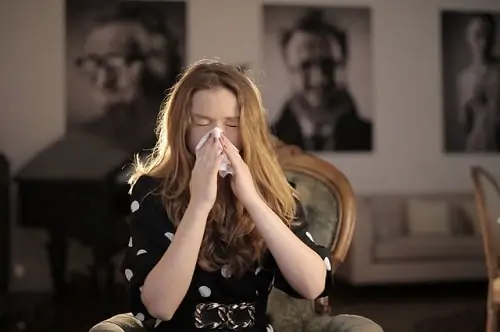Blog
Why Are My Teeth Discolored?

Discolored teeth are incredibly common, and your dentist in Douglasville talks to patients every day who are looking to improve the appearance of their teeth. While a less than dazzling smile can certainly hurt your self-confidence, is there a chance that tooth discoloration could also mean something more serious is going on?
Causes
There are numerous things that can contribute to tooth discoloration. Some are outside of our control, but there are also things we can control. And when we limit or remove those things from our lives, it can work wonders in transforming the color of our teeth. Let’s take a look at some of the most common causes of discoloration.
- Foods & Drinks
Some of our favorite foods and drinks may be delicious to eat but leave stains behind on our teeth. Coffee, tea, red wine, and even pasta sauce can cause teeth to darken over time. To limit the effects, enjoy these staining foods in moderation or rinse your mouth with water after eating them.
- Tooth Decay
One of the main reasons we brush and floss our teeth regularly is to remove bacteria and plaque buildup. If we don’t, they’re left behind and can easily cause damage. Bacteria in the mouth naturally release acid, and this acid can weaken enamel and increase the risk of decay. When the tooth enamel decays, the yellow innards of the teeth become more visible and make teeth appear dark. If the decay progresses it will lead to a cavity that can also be dark in color and require treatment from your dentist in Douglasville.
- Aging
There are a lot of great things about getting older. Tooth discoloration isn’t one of them. As we age, that protective enamel can become thin and once again show more of the yellowish layers underneath.
- Nicotine
Nicotine products, including cigarettes, cigars, and chewing tobacco, contain staining agents that, over time, will stick to the teeth and become very difficult (if not impossible) to remove.
- Old Dental Work
Thanks to advancements in technology, many of the old ways of doing dentistry have progressed. This includes things like fillings, crowns, and bridges. A lot of time, dental restorations can be made with white materials instead of metal that can quickly darken a smile. Talk with your dentist in Douglasville about any old dental work and ask about any new work to see if tooth-colored restorations are appropriate for you.
Treatment
The best way to whiten your teeth depends on the cause, and not all treatments will work for each situation. This is why it’s important to meet with your dentist in Douglasville before beginning any tooth-whitening treatment, including over-the-counter whitening products. Some forms of cosmetic dentistry that can improve the color of teeth, include:
- In-office professional smile whitening
- Dental bonding
- Crowns
- Veneers
You don’t have to live with a dull or discolored smile. Your dentist can help. Call to schedule an appointment today.
Can Allergies Make Your Teeth Hurt?

The season of spring is officially upon us. But that’s not the only season affecting us nowadays. It’s also allergy season. For many people, allergy season can be brutally annoying. The stuffy nose, the itchy eyes and throat, and the sneezing can make it hard to breathe. But did you know that allergies may also contribute to tooth pain and other dental problems? Let’s take a look at what your dentist in Douglasville has to say about allergies and your oral health.
Congestion & Tooth Pain
Saying that allergies cause tooth pain can seem like a stretch, but your dentist in Douglasville knows just how true it can be. When you’re congested, such as when your allergies are in full bloom, your maxillary sinuses are packed with pressure. This can make your head or face feel full like a balloon. Your back molars may also experience some pain. Why does that happen? Well, since the roots and nerves of those back teeth are so close to the maxillary sinuses, sinus inflammation can put pressure on the nerves and cause discomfort. Unfortunately, dental concerns with allergies don’t end there.
Stuffy Nose & Oral Health
The traditional side effects of allergies are annoying enough, but some secondary symptoms concern your dentist in Douglasville. One of the hallmarks of an allergy flare is a stuffy, drippy nose. A stuffy nose happens when there’s too much mucus production. While mucus is normal, too much of it can block up the nasal airways and make it hard to breathe out of the nose. As a result, allergy sufferers will start to breathe out of their mouths. Now, while this doesn’t seem like a big deal, chronic mouth breathing can contribute to some serious dental problems.
Mouth Breathing & Dental Problems
We understand that you need to breathe, so if your nose is stuffed up and you need to breathe out of your mouth, that’s ok. But long-term mouth breathing can cause long-term problems. Mouth breathing tends to dry out salivary glands and leave the mouth feeling as dry as a desert, also appropriately known as dry mouth. Dry mouth is uncomfortable, but it can also put someone at risk for cavities, bad breath, and gum disease. You see, saliva is responsible for rinsing away bad breath and cavity-causing bacteria. Without it, these bacteria are left behind to attack tooth enamel. Bacteria are the main contributors to bad breath, cavity development, and gum disease.
Treat Your Allergies, Save Your Smile
During allergy season, it’s important to treat symptoms as best as you can to avoid discomfort and protect your teeth from pain and the effects of mouth breathing. Find a medication that works for you and stick to it. You should also talk with your dentist in Douglasville about seasonal allergies or other allergies.
